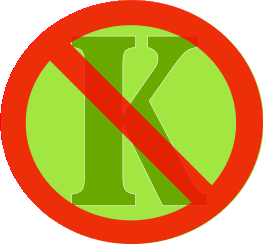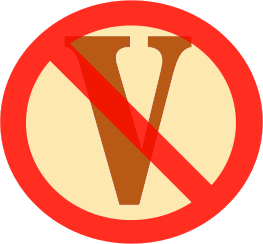TONGUE COATING HEALTH REMEDIES

Categories in Blood and CirculationTemperature SignsWater RegulationCirculationHeartLymph / Blood PlasmaRed Blood CellsImmune-SystemLiver & GallbladderAround EyesEyesTongue CoatingTongue Surface / CracksTongue BodyPulseOverviewDon't know your body type? Take our free Dosha quiz!
TAKE THE QUIZ
13 likes  SAVE SYMPTOM SAVE SYMPTOMA clear or absent tongue coating could indicate excess heat or high metabolism, especially if the tongue is also bright red - a pitta condition. A "well-oiled" individual with adequate nourishment will have a slight, very thin coating on the back of...      (5.00 out of 5 stars) 1 rating, 54 likes (5.00 out of 5 stars) 1 rating, 54 likes SAVE SYMPTOM SAVE SYMPTOMXerostomia, or dry mouth is a subjective feeling that the mouth is too dry. The terms comes from the Greek: Xeros = dry and stoma = mouth. This condition is commonly called pasty mouth or cotton mouth and effects 20% of the population. Lips may stick... 5 likes  SAVE SYMPTOM SAVE SYMPTOMCracks on the tongue often indicate tissue distress of the digestive tract, including inflammation, degenerative changes, toxicity of the colon, etc. 3 likes  SAVE SYMPTOM SAVE SYMPTOMCracks on the tongue often indicate tissue distress of the digestive tract, including inflammation, degenerative changes, toxicity of the colon, etc. 46 likes  SAVE SYMPTOM SAVE SYMPTOMA thick coating on the tongue is a sign of ama - toxins accumulating in the body. It may be a sign of thick blood and aggravated Kapha, or aggravated Vata with constipation. The coating is formed by action of bacteria on the tongue. The presence... 4 likes  SAVE SYMPTOM SAVE SYMPTOMCoating in the tongue cracks indicates acutely aggravated doshas in the blood, or a wind condition in Chinese medicine. This is an important warning sign to start caring for your body. 121 likes  SAVE SYMPTOM SAVE SYMPTOMA thick coating on the tongue indicates excess of Kapha dosha in the blood (sweet, thick blood) or Vata toxins in the colon due to fermentation of fecal matter. 26 likes  SAVE SYMPTOM SAVE SYMPTOMA yellow tongue indicates the liver is overwhelmed and excess bilirubin in the blood. It is often a sign of inflammation or infection somewhere in the body. 27 likes  SAVE SYMPTOM SAVE SYMPTOMA normal tongue has a very thin white coating in the back, which is a sign that the tongue is adequately nourished. If the tongue coating appears gray in color, it is a sign that ama (toxins) is present. The grayish color specifically indicates toxins... TONGUE COATING TIPS DISCLAIMER: The pathogenesis of each person's condition is unique, and so the diet must be fit to the individual and the unique root causes of the condition in your body. The information on this page is for educational purposes only and should not be used to treat a medical condition. It is not a substitute for medical care. Please check with your doctor before making any changes to your health and wellness routine. HOW AYURVEDA WORKSARE YOU WONDERING HOW AYURVEDA CAN HELP YOU?WHY IS AYURVEDA THE RIGHT SOLUTION?Ayurveda strengthens the body while opposing disorders. It takes a holistic, systemic approach that looks at the whole body. Ayurveda shows how to interpret signs and symptoms of imbalance, and how to address them using diet, lifestyle adjustments, and herbs. It shows a person how to optimize their health on a continual basis. You can't take the doctor home with you, but you can take Ayurveda home with you. Ayurveda is the most advanced and easy to use home system for self healing.HOW DOES AYURVEDA WORK?Ayurveda starts by identifying your body type, which identifies certain tendencies in your body to get sick (as well as identifying your strengths). It uses body type to determine the likely root causes of your disorders. Next, Ayurveda analyzes the nature of your disorder. It fits all your signs and symptoms into a pattern, expressed as a combination of biocharaceristics (gunas). For example, you may have a heat disorder, a cold disorder, or an oily disorder, etc. This simple categorical approach shows you how to correct systemic imbalances and strengthen your body as a whole.On Joyful Belly, we've created an extensive categorization of food so you can easily match food to your imbalanced biocharacteristics. By eating an optimal diet that balances your biocharacteristics, your whole body is strengthened and the conditions that created the disorder are removed. Once the root causes of the disease are removed, the disease lessens in strength or disappears altogether. Additional remedies - such as herbs and lifestyle practices - focused on the specific disorder, can greatly enhance your healing. GET STARTEDTo get started on your Ayurvedic journey, we first recommend that your find your body type by taking our free quiz. In Ayurveda, every solution is based on your unique body type, so by taking this quiz, you’ll get the best results. |
Join Joyful Belly.
Want our top Ayurvedic recipes and health tips?Subscribe to our free newsletter!












